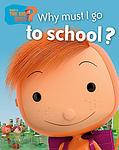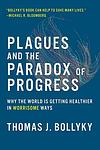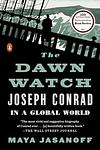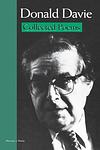The Greatest Unknown "Nonfiction" Books Since 1980
Click to learn how this list is calculated.
This list represents a comprehensive and trusted collection of the greatest books. Developed through a specialized algorithm, it brings together 300 'best of' book lists to form a definitive guide to the world's most acclaimed books. For those interested in how these books are chosen, additional details can be found on the rankings page.
Genres
Countries
Date Range
Reading Statistics
Click the button below to see how many of these books you've read!
Download
If you're interested in downloading this list as a CSV file for use in a spreadsheet application, you can easily do so by clicking the button below. Please note that to ensure a manageable file size and faster download, the CSV will include details for only the first 500 books.
Download-
26. The Bet by Paul Sabin
This book delves into the high-stakes wager between two influential figures, an economist and a biologist, who held opposing views on the future of global resources and population growth. Set against the backdrop of the latter half of the 20th century, the narrative explores the broader debate on environmental policy, economic growth, and the limits of Earth's resources. Through the lens of this famous bet, the author examines the impact of their clash on public discourse and policy, highlighting the complexities of predicting the planet's environmental future. It serves as a fascinating case study on how scientific debates can influence political and public opinion, and the challenges of balancing resource sustainability with human progress.
-
27. The Great Escape by Angus Deaton
This book delves into the historical journey of human progress, particularly focusing on how health and prosperity have evolved over time to create significant disparities in wealth and well-being across different populations. It examines the mechanisms of growth and the spread of prosperity, alongside the challenges and inequalities that have emerged. Through a detailed analysis, the narrative explores the roles of technology, innovation, and government policies in shaping the economic landscapes and the distribution of resources. The author critically addresses the complexities of escaping poverty and the ethical considerations surrounding aid and intervention in less developed economies. The work is a comprehensive exploration of the global patterns of health, wealth, and inequality, offering insights into the potential paths toward a more equitable world.
-
28. When We Cease To Understand The World by Adrian Nathan West, Benjamin Labatut
"When We Cease To Understand The World" is a collection of two novellas that explore the limits of human knowledge and the consequences of scientific discovery. In "The Immaculate Void," a mathematician becomes obsessed with solving a seemingly unsolvable equation and risks his sanity in the process. In "The Unfinished," a group of scientists race to unlock the secrets of nuclear fission, only to realize the devastating power they have unleashed. Through these stories, the authors question the role of science in society and the dangers of pursuing knowledge without considering its ethical implications.
-
29. Swallowing Clouds by Anthony Zee
"Swallowing Clouds" is a unique fusion of culinary guide and linguistic journey that explores the poetic and flavorful world of Chinese cuisine. The book delves into the etymology and symbolism of Chinese characters used in food and menus, offering readers not only a deeper understanding of Chinese culture and language but also practical knowledge for ordering and appreciating Chinese food. Through an engaging exploration of restaurant menus and dishes, the author provides insights into the history, culture, and intricate flavors that define Chinese gastronomy, making it an enlightening read for food enthusiasts and language lovers alike.
-
30. Exoplanets And Alien Solar Systems by Tahir Yaqoob
"Exoplanets and Alien Solar Systems" provides a comprehensive overview of the field of exoplanet research, exploring the methods used to discover and study planets beyond our solar system. The book delves into the various types of exoplanets discovered, the characteristics of these distant worlds, and the implications for understanding our place in the universe. It also discusses the technological advancements and scientific principles underlying exoplanet detection and analysis, offering insights into future prospects and challenges in the field. This work serves as both an informative guide for those new to astronomy and a detailed resource for seasoned researchers interested in extraterrestrial planetary systems.
-
31. Figuring by Maria Popova
"Figuring" explores the complex interconnections between the lives of several historical figures across four centuries, primarily focusing on women who have made significant contributions to science, art, and culture. The narrative weaves together the personal and professional endeavors of these individuals, highlighting their struggles, relationships, and the societal challenges they faced. The book delves into themes of love, discovery, and the pursuit of knowledge, illustrating how these elements are intertwined in the human experience and how the contributions of these figures have shaped our understanding of the world.
-
32. Trans by Juliet Jacques
"Trans" is a candid and poignant memoir that chronicles the personal journey of transitioning from male to female, exploring the complexities of gender identity and the challenges faced by transgender individuals. The author offers an intimate look into their experiences with gender dysphoria, the medical processes of transitioning, and the social implications of living as their true self. The narrative also delves into the broader cultural and political issues surrounding trans rights and representation, providing a nuanced perspective on the intersection of personal and political in the quest for authenticity and acceptance in society.
-
33. In The Vineyard Of The Text by Ivan Illich
"In the Vineyard of the Text" is a reflective exploration of the evolution of reading practices, focusing particularly on the transition from oral to textual culture in the 12th century. The book examines how this shift influenced the perception and intellectual engagement of society with texts through the lens of Hugh of St. Victor, a medieval scholar. It delves into the transformation from listening to reading as a personal, silent activity, highlighting the profound changes this brought to learning and the organization of knowledge. The author argues that this evolution led to a more introspective and individualistic relationship with information, fundamentally altering the landscape of education and intellectual life.
-
34. There Is A World Elsewhere by F. Gonzalez-Crussi
"There Is a World Elsewhere" is a reflective exploration of the author's experiences as an immigrant, blending personal narrative with broader cultural and philosophical insights. The book delves into the complexities of identity, belonging, and the concept of home, examining how these elements are reshaped in the context of migration. Through a series of essays, the author offers a poignant and thoughtful look at the immigrant experience, interweaving his personal journey with meditations on history, literature, and the human condition, ultimately presenting a rich tapestry of what it means to live between two worlds.
-
35. The Age of Surveillance Capitalism by Shoshana Zuboff
The book explores the emergence of surveillance capitalism, a new form of capitalism that thrives on personal data. The author details how tech companies, such as Google and Facebook, collect and use personal data to predict and modify human behavior as a means to produce revenue and market control. The book delves into the consequences of this phenomenon on economy, society, and democracy, warning about the dangers of unchecked data collection and manipulation.
-
36. What's The Big Idea? by Oscar Brenifier
"What's The Big Idea?" is a philosophical book aimed at engaging children in deep and meaningful conversations about everyday concepts. Through a series of dialogues, the book explores various philosophical questions that encourage young readers to think critically about the world around them. Each topic is presented in a simple yet thought-provoking manner, making complex ideas accessible and intriguing to the young mind. The book serves as a tool to foster curiosity, dialogue, and reflection among children, helping them to develop a philosophical perspective on life from an early age.
-
37. No Turning Back by Rania Abouzeid
"No Turning Back" provides a gripping and intimate portrayal of the Syrian war through the eyes of four individuals whose lives are transformed by the uprising against the Assad regime. The narrative delves deep into the personal stories of a young revolutionary, a child refugee, a jihadist, and a disillusioned government soldier, offering a nuanced and humanizing perspective on the complex conflict. The book captures the brutal realities and emotional depths of the Syrian struggle, highlighting the enduring human spirit amidst chaos and destruction.
-
38. How To Avoid A Climate Disaster by Bill Gates Sr.
In "How to Avoid a Climate Disaster," the author presents a comprehensive and accessible exploration of the challenges and potential solutions to mitigate climate change. Drawing on his extensive experience in technology and philanthropy, he outlines the current state of global emissions and their impacts on the planet. The book emphasizes the importance of innovative technologies and government policies in transitioning to cleaner energy sources. It offers a pragmatic approach to reducing greenhouse gas emissions to zero by advocating for a combination of renewable energy adoption, carbon capture techniques, and advancements in agriculture and manufacturing. The author's insights aim to mobilize individuals, businesses, and policymakers towards urgent action to avert the catastrophic effects of climate change.
-
39. This Much Is True by Miriam Margolyes
In "This Much Is True," the author presents a candid and humorous autobiography that delves into her life as a celebrated actress and storyteller. With a career spanning decades in theater, film, and television, she shares personal anecdotes and reflections on her professional journey, her identity, and her experiences with fame and the arts. Known for her wit and no-nonsense attitude, the author offers readers an intimate look at the highs and lows of her life, her outspoken views on various issues, and the colorful encounters she's had with notable personalities throughout her vibrant career.
-
40. Red by John Logan
The play is a captivating portrayal of a renowned abstract expressionist painter at the peak of his career, facing the challenge of creating a significant series of murals. Set over the course of two years, it delves into the artist's volatile relationship with a fictional young assistant, who challenges his artistic integrity, methods, and philosophy. Through intense dialogue and shifting dynamics, the narrative explores the nature of art, the act of creation, and the inevitable clash between ambition and commercialism, all while reflecting on the burden of legacy and the struggle for relevance in a rapidly changing art world.
-
41. Plague's Progress by Arno Karlen
"Plague's Progress" is a thought-provoking exploration of the history and impact of infectious diseases on human civilization. From the Black Death to modern-day epidemics, the book delves into the scientific, social, and cultural aspects of plagues, highlighting their devastating consequences and the efforts made to combat them. With a blend of historical accounts and scientific analysis, the author presents a compelling narrative that sheds light on the complex relationship between humans and the pathogens that have shaped our world.
-
42. The Wisdom Of Bones by Alan Walker, Pat Shipman
"The Wisdom of Bones" is a captivating exploration of human evolution and the remarkable insights gained from the study of ancient remains. Written by renowned scientists, the book delves into the fascinating world of paleoanthropology, revealing the intricate details of our ancestors' lives and the clues they left behind in their bones. Through vivid storytelling and meticulous research, the authors shed light on the origins of humanity, offering a thought-provoking journey through time and the remarkable wisdom that can be gleaned from the study of bones.
-
43. The Dawn Watch by Maya Jasanoff
"The Dawn Watch" explores the life and times of Joseph Conrad, delving into the profound impact of his experiences as a sailor and immigrant on his celebrated literary works. The book weaves together a biography of Conrad with an analysis of the globalization processes that shaped the modern world, as reflected in his novels. By examining themes such as imperialism, capitalism, and cultural encounters, the narrative not only sheds light on Conrad's personal struggles and insights but also on how his writings foresaw and articulated the complexities and challenges of today's global society.
-
44. The House Of The Dead by Daniel Beer
"The House of the Dead" explores the brutal reality of life in Siberian penal colonies during the nineteenth century, where the Russian Empire sent thousands of prisoners to endure incredibly harsh conditions. The book provides a detailed historical account, drawing on a wealth of archival material and personal stories to illuminate the lives of these exiles. It examines the impact of exile on the transformation of Russia, revealing how the penal system influenced both the society and the political landscape, including the rise of revolutionary movements. Through its vivid narrative, the book paints a comprehensive picture of suffering, survival, and the human capacity to adapt in one of the most inhospitable places on earth.
-
45. A (Very) Short History Of Life On Earth: 4.6 Billion Years In 12 Pithy Chapters by Henry Gee
"A (Very) Short History Of Life On Earth: 4.6 Billion Years In 12 Pithy Chapters" is a concise exploration of the vast expanse of time that has shaped life on our planet. From the origins of life to the evolution of complex organisms, the book takes readers on a captivating journey through the key milestones and transformations that have occurred over the course of 4.6 billion years. With wit and clarity, the author presents a fascinating overview of Earth's biological history, offering a deeper understanding of our place in the grand tapestry of life.
-
46. Poems Of Donald Davie by David Donald
The collection presents a curated selection of lyrical works by a renowned poet, known for his technical mastery and intellectual depth. The poems reflect a wide range of themes, from personal reflections to cultural critiques, all delivered with a precise use of language and a commitment to formal structure. The poet's engagement with history, morality, and the nuances of human experience is evident throughout the anthology, offering readers a profound exploration of the complexities of the modern world through the lens of poetry.
Reading Statistics
Click the button below to see how many of these books you've read!
Download
If you're interested in downloading this list as a CSV file for use in a spreadsheet application, you can easily do so by clicking the button below. Please note that to ensure a manageable file size and faster download, the CSV will include details for only the first 500 books.
Download

















